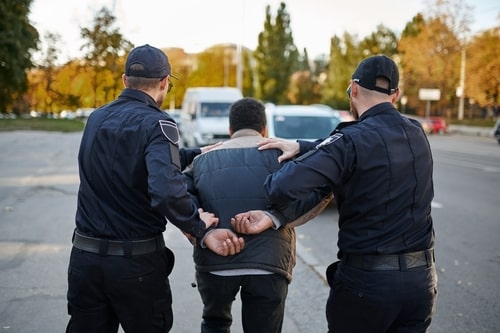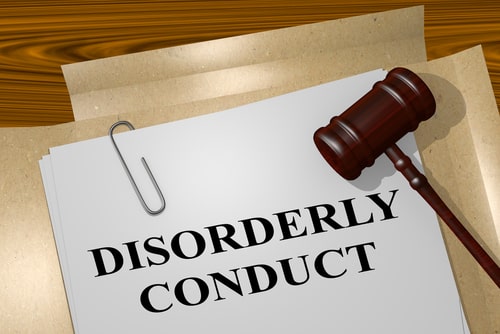Recent Blog Posts
What to Do If Charged with Public Intoxication
 Facing charges of public intoxication can lead to an overwhelming experience filled with uncertainty. Make sure you understand your legal rights and the steps you need to take to get the best outcome possible. A Texas lawyer can assist you in understanding the potential consequences and advise you on the appropriate course of action if you face such charges.
Facing charges of public intoxication can lead to an overwhelming experience filled with uncertainty. Make sure you understand your legal rights and the steps you need to take to get the best outcome possible. A Texas lawyer can assist you in understanding the potential consequences and advise you on the appropriate course of action if you face such charges.
What to Know About Public Intoxication
Under Texas Penal Code Section 49.02, public intoxication is defined as appearing in a public place while intoxicated to the degree that you may endanger yourself or others. Alcohol, drugs, or any other substance can cause intoxication. It is important to note that you do not need to be driving to be charged with public intoxication; when you are intoxicated in a public space, it is enough to warrant an arrest.
What to Do When Charged with Reckless Driving in Texas
 Facing a reckless driving charge in Texas can be intimidating. Understanding the potential consequences and taking the necessary steps to protect your rights is important. A Texas lawyer can help determine what constitutes reckless driving in Texas, the penalties you may face, and what actions you should take if you find yourself in this situation.
Facing a reckless driving charge in Texas can be intimidating. Understanding the potential consequences and taking the necessary steps to protect your rights is important. A Texas lawyer can help determine what constitutes reckless driving in Texas, the penalties you may face, and what actions you should take if you find yourself in this situation.
What is Considered Reckless Driving in Texas?
Under Texas Transportation Code Section 545.401, reckless driving is defined as operating a vehicle with willful or wanton disregard for the safety of persons or property. This can include behaviors such as excessive speeding, weaving in and out of traffic, or disregarding traffic signals. It is important to note that reckless driving is a criminal offense, not just a simple traffic violation.
Defending Against Charges of Online Fraud in Texas
 Whether you are accused of identity theft, hacking, phishing scams, or any other internet fraud, you must take the charges seriously from the start. A Texas lawyer is important to have on your side when your rights, freedom, and future are on the line. With the right legal strategy, you can fight back against these allegations and ensure your side of the story is told correctly.
Whether you are accused of identity theft, hacking, phishing scams, or any other internet fraud, you must take the charges seriously from the start. A Texas lawyer is important to have on your side when your rights, freedom, and future are on the line. With the right legal strategy, you can fight back against these allegations and ensure your side of the story is told correctly.
Types of Online Fraud Charges
In Texas, several statutes can be used to prosecute online fraud cases. Common charges include:
- Fraud/Deceptive Trade Practices: This covers a wide range of deceptive online activities intended to unlawfully deprive others of money, property, or services.
- Identity Theft: Illegally obtaining and using another person’s identifying information, like name, date of birth, social security number, etc., for fraudulent purposes.
Handling False Domestic Violence Accusations in Texas
 Domestic violence accusations are serious matters that should never be taken lightly. However, in some unfortunate cases, false allegations do occur, often from a vengeful ex-partner seeking leverage in a divorce or child custody dispute.
Domestic violence accusations are serious matters that should never be taken lightly. However, in some unfortunate cases, false allegations do occur, often from a vengeful ex-partner seeking leverage in a divorce or child custody dispute.
If you find yourself wrongly accused of domestic violence, it is crucial to take legal action to protect your rights and reputation. A Texas lawyer will guide you through the steps to handle false domestic violence accusations effectively.
What to Know About Texas Domestic Violence Laws
According to the Family Code in Texas, domestic violence is defined as any action taken by a family or household member to cause physical injury, bodily harm, assault, or issuing a threat that reasonably instills fear of immediate physical harm in the victim. The severity of these offenses can vary widely, from relatively minor Class C misdemeanors to serious first-degree felonies, depending on the seriousness of the act and whether a deadly weapon was involved.
What Does Texas Consider Public Intoxication?
 In Texas, public intoxication refers to appearing in a public place while intoxicated to the point where you may endanger yourself or another person. The specifics of public intoxication laws and penalties are important to understand if you have been charged with this offense. A Texas lawyer can help you determine the potential outcome of your charges and what you should likely do next.
In Texas, public intoxication refers to appearing in a public place while intoxicated to the point where you may endanger yourself or another person. The specifics of public intoxication laws and penalties are important to understand if you have been charged with this offense. A Texas lawyer can help you determine the potential outcome of your charges and what you should likely do next.
What Constitutes Public Intoxication?
Under Section 49.02 of the Texas Penal Code, a person commits an offense of public intoxication if they appear in a public place while intoxicated to the degree that they may endanger someone else or themselves. It is vital to know that Texas law does not state a blood alcohol concentration (BAC) level that definitively proves intoxication. Officers rely on common signs of intoxication to determine if someone is publicly intoxicated, including:
How to Prove Your Resisting Arrest Charge Was Unlawful
 Being arrested can be scary and confusing, and you feel unjustified, especially when you know you have done nothing wrong. So when police slap handcuffs on you, it is understandable to pull away or question why it is happening instinctively. However, physically resisting arrest or disobeying officers' orders could lead to additional charges that hurt your case.
Being arrested can be scary and confusing, and you feel unjustified, especially when you know you have done nothing wrong. So when police slap handcuffs on you, it is understandable to pull away or question why it is happening instinctively. However, physically resisting arrest or disobeying officers' orders could lead to additional charges that hurt your case.
If you find yourself accused of resisting arrest, do not panic. With the right evidence and legal argument, you may be able to beat the charge and even have the mistaken arrest wiped from your record. A Texas criminal defense attorney can help you to see if there is any potential to fight your charge.
Were You Unaware You Were Resisting?
Another defense your lawyer might use is that you were unaware you were resisting in the first place. Perhaps you reflexively pulled your arm back when cuffed or did not hear instructions over ambient noise.
Is it Possible to Get a Felony Charge Dropped?
 Being charged with a felony offense can be an incredibly stressful and life-altering experience. Naturally, those facing a felony charge will be eager to understand if there are any options to get the charges dropped or reduced to a misdemeanor. While every case has unique details, there are a few common strategies that a Texas criminal defense lawyer can use to advocate for dropped or reduced charges.
Being charged with a felony offense can be an incredibly stressful and life-altering experience. Naturally, those facing a felony charge will be eager to understand if there are any options to get the charges dropped or reduced to a misdemeanor. While every case has unique details, there are a few common strategies that a Texas criminal defense lawyer can use to advocate for dropped or reduced charges.
File a Motion to Suppress Evidence
One of the most effective ways to get felony charges dropped is by filing a motion to suppress evidence. If there are issues with how evidence against you was obtained by police and prosecutors, your defense attorney can argue that it violates your Constitutional rights and should be inadmissible.
For example, if evidence was seized without probable cause or reasonable suspicion of a crime, your attorney can file a motion to suppress. If the judge agrees that prosecutors or police acted improperly in collecting evidence, the judge may suppress that evidence, which can result in dropped or reduced charges due to lack of evidence.
Is it Possible to Fight a Probation Violation?
 If you have been accused of violating your probation in Texas, you may feel anxious or defeated. However, it is possible to fight a probation violation allegation. With the help of a Texas criminal defense attorney, you may be able to avoid probation revocation and stay out of jail.
If you have been accused of violating your probation in Texas, you may feel anxious or defeated. However, it is possible to fight a probation violation allegation. With the help of a Texas criminal defense attorney, you may be able to avoid probation revocation and stay out of jail.
What Constitutes a Probation Violation
There are two main categories of probation violations in Texas: technical violations and substantive violations. Technical violations cover failures to follow administrative probation terms properly, like missing meetings with your probation officer, failing drug or alcohol tests, not keeping probation informed of your current address, traveling outside permitted jurisdictions without permission, or failing to pay fines or fees. More serious violations for things like committing a new crime, possession of contraband, or positive drug tests are considered substantive violations.
What Does Disorderly Conduct Mean in Texas?
 Getting charged with disorderly conduct in Texas exposes you to up to $500 for a class C offense or $2,000 for a class B offense. But what constitutes acts qualifying for disorderly conduct accusations? Understanding the specifics helps avoid confrontations leading to citations. A Texas criminal defense lawyer can help you understand the charges and try to figure out if you have grounds to get them dismissed.
Getting charged with disorderly conduct in Texas exposes you to up to $500 for a class C offense or $2,000 for a class B offense. But what constitutes acts qualifying for disorderly conduct accusations? Understanding the specifics helps avoid confrontations leading to citations. A Texas criminal defense lawyer can help you understand the charges and try to figure out if you have grounds to get them dismissed.
Defining Disorderly Behavior
Texas statute states that disorderly conduct is when an individual intentionally or knowingly uses “indecent, vulgar, abusive, or profane language in a public place” that incites breach of the peace. Also included is making “offensive gestures or displays” inciting lawless action. So vulgarity and offensive visible expressions causing public unrest meet disorderly conduct criteria.
Difference Between Theft and Robbery in Texas

In Texas, laws break down stealing offenses into categories like theft, robbery, and burglary—each with distinct definitions and penalties behind bars. For anyone facing accusations, understanding precisely how the law classifies your alleged criminal act is crucial to building an appropriate defense. A Texas attorney can help you make sure that you are receiving charges for the proper offense.
Theft Means Taking Property Unlawfully (Without Force)
The basic definition of theft under Texas law states that it involves illegally taking property belonging to someone else, without their consent. Theft can involve anything—money, items, data, services—having tangible monetary value. Charges vary based on what gets stolen and its worth, ranging from misdemeanors up to felony counts carrying years in prison depending on specific case circumstances and the accused party’s criminal record.





